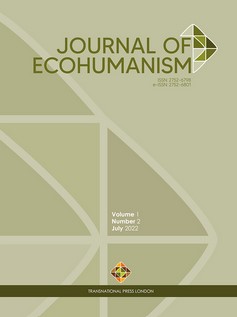Indian Intersectional Ecofeminism and Sustainability: A Study on Mayilamma: The Life of a Tribal Eco-Warrior and Jharkhand's Save the Forest Movement
Indian Intersectional Ecofeminism and Sustainability: A Study on Mayilamma: The Life of a Tribal Eco-Warrior and Jharkhand's Save the Forest Movement
Author(s): Justin Jyothi, Nirmala MenonSubject(s): Gender Studies, Indian Philosophy, Human Ecology, Environmental interactions
Published by: Transnational Press London
Keywords: Intersectional Ecofeminism; Ecofeminism; Intersectionality; Postcolonialism; Sustainable Development;
Summary/Abstract: Ecofeminism in India, if approached and analysed non intersectionally, will negate the struggles of the indigenous ecofeminists and their encounters. Therefore, it is important to look deeply into the indigenous ecofeminist initiatives in the country, especially by the Dalit and the Adivasi women. The paper attempts to engage with intersectional ecofeminism in India by focusing on the textual and the pragmatic aspects of the movement through specific case studies. “Mayilamma: The Life of a Tribal Eco-Warrior” and “Save the Forest the Movement” in Jharkhand are closely read and analysed to understand the similarities and differences in the relationship between tribal women and their environment. This paper, therefore, tries to see the impact of ecofeminist activities of Adivasi or tribal women on battling environmental crisis and the reception of the same in policy making for sustainable development. The main aim of the paper is to understand the effect of intersectional ecofeminism in India on sustainable development. The paper also acknowledges the criticisms against intersectional ecofeminism and highlights the presence of alternate movements. This analysis further leads to the proposal of intersectional ecofeminism as a suitable model for sustainability in future.
Journal: Journal of Ecohumanism
- Issue Year: 1/2022
- Issue No: 2
- Page Range: 123-137
- Page Count: 15
- Language: English

